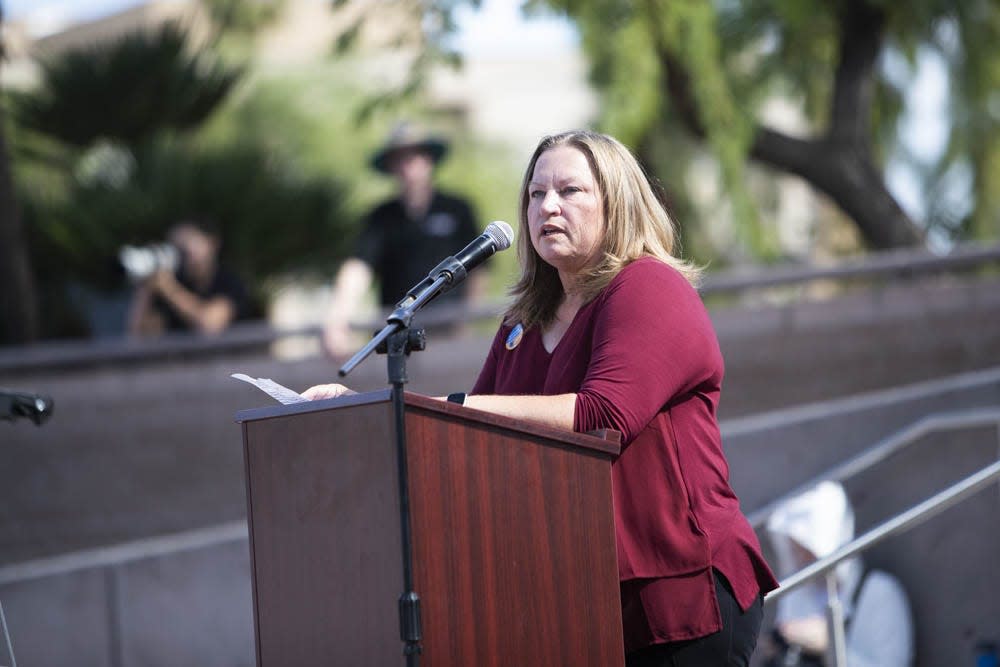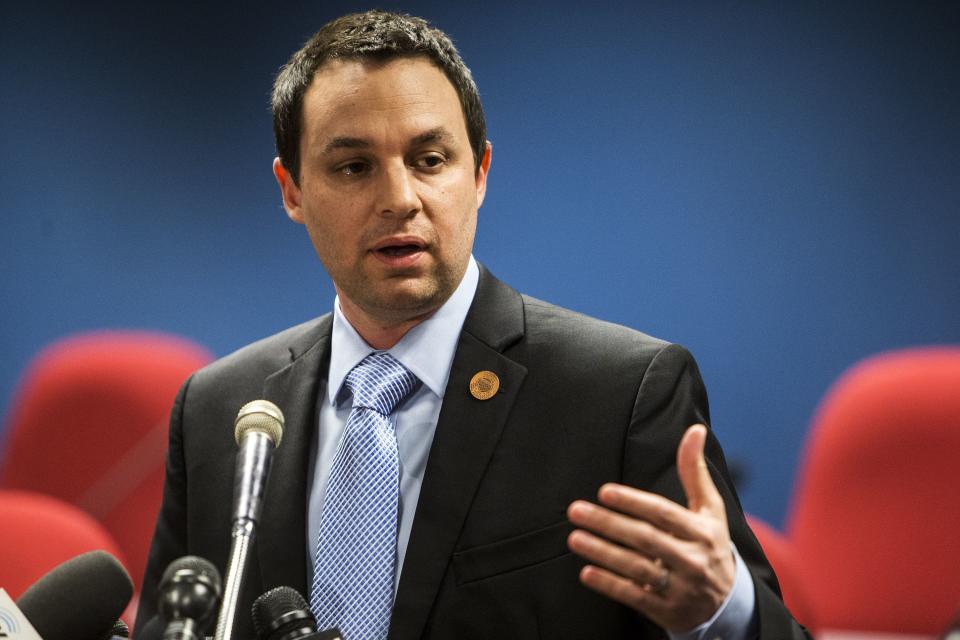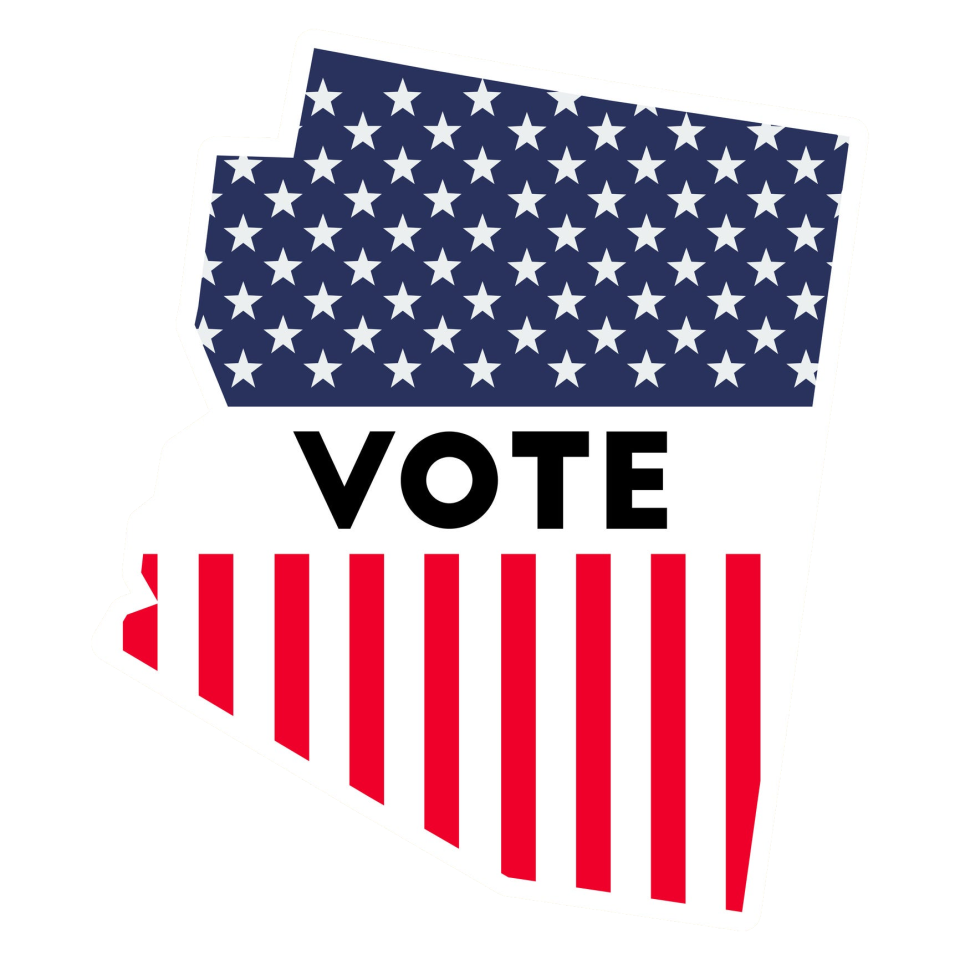Cindy Hans is running for the Arizona Senate in District 13. Here's where she stands on key issues

Voters have until Nov. 8 to choose who will fill the 30 open seats in the Arizona Senate, where election winners will craft policies around issues ranging from voting rights to abortion over the next two years.
Democratic newcomer Cindy Hans is challenging longtime Republican lawmaker J.D. Mesnard in Chandler's newly formed Legislative District 13, a race that’s slated to be among the state’s most competitive as voters there are virtually split down the middle in terms of party preference.
Hans worked as a public school teacher and principal for three decades and has set her sights on improving Arizona’s education system if she comes out on top in November.
Mesnard is wrapping up his second term as an Arizona senator and also served eight years in the state’s House of Representatives, including as Speaker of the House.

Residents must register to vote by Oct. 11 and can check their registration status on the Arizona Secretary of State’s website. Those who vote by mail should send in their ballot by Nov. 1 or drop it off at a voting location by 7 p.m. on Election Day, Nov. 8.
The Arizona Republic asked District 13 Senate candidates to share their views on key state issues to help voters decide whom to elect. Mesnard did not provide answers after repeated requests.
Top priorities
If you are elected, what will be your top priority while in office, and what would you do about it?
Hans (D): As an education veteran, with decades of experience as a teacher and principal, my No. 1 priority is education. I’ve seen how funding cuts harm our public education system. I am ready to co-sponsor and support legislation that invests in our public schools to lower class sizes. Raising teacher pay will help retain qualified educators as well as encourage more to enter the profession.
I support any school that receives tax dollars to the same accountability and transparency standards as public schools. I also support common-sense gun safety measures that will make our schools safer from gun violence.
Education
Public schools received a $1 billion budget increase this year that's expected to raise Arizona’s ranking from 48th to 45th in per-pupil spending. How do you see the level of current public-school funding in Arizona: Too little, too much or about right? Should the Aggregate Expenditure Limit be raised, allowing schools to spend the extra money?
Hans (D): This increase is a step in the right direction, but I do not celebrate Arizona ranking 45th in the country for education funding. Our students are our future and we must raise funding levels to ensure a qualified teacher is in every classroom. We should reinvest more of our budget surplus into the public education system. The Aggregate Expenditure Limit must be repealed. Additional funding will do nothing if our schools don’t have the opportunity to spend it.
Do you support the school voucher expansion that passed this year and would you seek to modify it?
Hans (D): I do not support school voucher expansion; nor would I repeal the current voucher plan. The passage of Prop 305 in 2018 proved that the voters prefer to keep the investment of tax dollars in public schools. Approximately 90% of Arizona students attend public schools and voucher expansion will undermine our ability to meet students' needs. Currently, private and charter schools are not held to the same standards of accountability and universal voucher expansion will publicly fund private schools with no oversight.
Elections and voting rules
Do you think there are significant problems with the state’s election system and, if so, what are they and how would you try to fix them?
Hans (D): Maricopa County Elections are quite secure. I have worked every election since 2017 and volunteered as deputy registrar, and I learned first-hand the safeguards of our election system. Voters depend on accessibility through mail in ballots, drop off ballots and early voting through vote centers.
I invite anyone interested in our election system to invest their time to tour McTec (Maricopa County Tabulation and Election Center), to become a deputy registrar and a poll worker. Elections are managed by bipartisan teams of well-trained election officials. They exemplify personal integrity and I have great confidence in their dedication to an honest and secure election.
Do you support mail-in voting?
Hans (D): Absolutely. Mail-in voting brings democracy to our doorsteps and is a critical component of our election system. Upwards of 80% of Arizona voters use the mail-in ballot system, Republicans and Democrats alike. Mail-in ballots are necessary to ensure that those who physically cannot make it to the polls or those who cannot miss work still have an opportunity to have their voice heard.
Do you believe that the Legislature has plenary power, or should obtain the power, to overturn elections?
Hans (D): Absolutely not. The Arizona Legislature is limited by our Constitution and does not have the power to overturn elections. Arizonans’ choices at the ballot box should be respected by our Legislature 100%. Allowing the Legislature to overturn the will of the people in this manner would be an incomprehensible threat to our democracy.

Election guide: November 2022
City races | School boards | State | Governor
| Ballot measures | Federal races | How to vote
Water resource management
What should the state Legislature do to best manage future cuts to the CAP water supply and the possibility that the drought may not end or get worse?
Hans (D): The water crisis is a complex issue that we have waited far too long to address. Cuts to our water supply will continue and the Arizona Legislature needs to ensure that we are prepared for these cuts.
I believe that the first step is to partner with experts, stakeholders and local government officials to assess plans currently in place. We must allocate additional funding to climate mitigation, water preservation, and infrastructure overall. We should look at specific proposals from our own experts and other states who have managed similar conditions to help us identify the best solutions.
Social issues and immigration
Are there particular cultural issues you would feel compelled to take a stand on – i.e., abortion, LGBTQ, critical race theory, or corporate environmental, social and governance measures – and what would be your position on them? How would you balance personal freedoms with your stance on these issues?
Hans (D): Access to full and complete reproductive healthcare, including abortion, is essential, without government interference. Restoring privacy for medical decisions is one of my top priorities. As state Senator, I will protect the freedom to choose and healthcare privacy for all Arizonans. I similarly respect the privacy of our LGBTQ+ community members and will always work to make our communities, schools, and state more inclusive.
What, if anything, should the Legislature do to address immigration and border issues?
Hans (D): Comprehensive immigration reform is complex and necessary but must be handled at a federal level. I believe in a secure border, and also that the Arizona Legislature should act to ensure that treatment of individuals at the border is as safe and humane as possible.
Economy, state spending
Do you think the Legislature should try to help ease inflation in Arizona, (metro Phoenix’s inflation rate is No. 1 in the country), and how should lawmakers do that?
Hans (D): Inflation isn’t unique to Arizona; the confluence of a pandemic followed by the release of pent up demand coupled with a strained supply chain and staggering profit gains in certain industries contributed to worldwide inflation. However: Can rent inflation be addressed by individual city policies to require an amount of low income housing; can Housing Trust Funds be increased? Can local communities be incentivized to develop affordable housing? Can our tax structure be adjusted to reduce pressure on family incomes; are tax breaks benefitting most of our families or a small minority? These answers may provide some relief to inflation pressures.
State revenues produced an estimated $5 billion surplus this year. If the trend toward budget surpluses continues, what would you do with the surplus funds?
Hans (D): A budget surplus of this kind can improve our economy and living conditions for Arizona families. I would like to see investments in education (including post-high school trade schools as well as college and universities), healthcare, and infrastructure. We can fully fund our public schools; expand KidsCare to ensure that no child is without mental and physical health care.
It is time to seriously invest in climate mitigation strategies, water infrastructure and broadband internet. These areas need critical investments now, which is possible with our budget surplus.
Reach Sam at sam.kmack@arizonarepublic.com. Follow him on Twitter @KmackSam.
Support local journalism. Subscribe to azcentral.com today.
This article originally appeared on Arizona Republic: AZ Legislature: Cindy Hans on key issues in District 13 Senate race

